Table of Contents
Noun-Number:
The number denotes whether we speak of one object or more.
- Singular Number- A Noun that denotes one person or thing is said to be in the singular number; as, man, boy, girl, bird, etc.
- Plural Number- A Noun that denotes more than one person or thing is said to be in the plural number; as, men, boys, girls, birds, etc.
Remember- Proper, Material, and Abstract Nouns have no plural except when they are used as Common Nouns;
- Many cases of deaths have occured.
- Science has worked wonders.
- Wines (kinds of wines) are usually served in big parties.
- Irons (chains) were put round the notorious dacoit.
Rules for Making Plurals:
(1) The plural of nouns is generally formed by adding ‘s’ to the singular; as,
| Boy | Boys |
| Girl | Girls |
| Book | Books |
| Chair | Chairs |
| Tree | Trees |
| Bird | Birds |
| Monarch | Monarchs |
| Stomach | Stomachs |
(2) Nouns ending in ‘s’, ‘sh’, ‘ch’ (when ‘ch’ does not sound as ‘k’) or in ‘x’ form plural by adding ‘es’ to the singular; as,
| Bus | Buses |
| Class | Classes |
| Bush | Bushes |
| Bench | Benches |
| Box | Boxes |
| Tax | Taxes |
| Branch | Branches |
(3) Most Nouns ending in ‘o’ also form the plural by adding ‘es’ to the singular; as,
| Mango | Mangoes |
| Cargo | Cargoes |
| Hero | Heroes |
| Buffalo | Buffaloes |
| Echo | Echoes |
| Negro | Negroes |
But the following are exceptions to this rule-
| Photo | Photos |
| Piano | Pianos |
| Solo | Solos |
| Ratio | Ratios |
| Stereo | Stereos |
| Radio | Radios |
| Dynamo | Dynamos |
(4) Nouns ending in ‘y’ and preceded by a consonant form plural by changing ‘y’ into ‘i’ and then adding ‘es’; as,
| Baby | Babies |
| Lady | Ladies |
| Story | Stories |
| Army | Armies |
| Pony | Ponies |
| City | Cities |
Exceptions- But Nouns ending in ‘y’ and preceded by a vowel simply take ‘s’ to form plural; as,
| Storey | Storeys |
| Boy | Boys |
| Key | Keys |
| Day | Days |
| Toy | Toys |
| Essay | Essays |
(5) Several Nouns ending in ‘f’ or ‘fe’ from their plural by changing ‘f’ or ‘fe’ into ‘v’ and then adding ‘es’; as,
| Leaf | Leaves |
| Thief | Thieves |
| Life | Lives |
| Wife | Wives |
| Half | Halves |
| Knife | Knives |
| Calf | Calves |
| Shelf | Selves |
| Loaf | Loaves |
Exceptions:
| Roof | Roofs |
| Proof | Proofs |
| Hoof | Hoofs |
| Grief | Griefs |
| Chief | Chiefs |
| Belief | Beliefs |
| Brief | Briefs |
| Safe | Safes |
| Scarf | Scarfs |
| Dwarf | Dwarfs |
(6) A few Nouns form their plurals by changing internal vowels; as,
| Foot | Feet |
| Mouse | Mice |
| Goose | Geese |
| Tooth | Teeth |
| Man | Men |
| Woman | Women |
| Washer-man | Washer-men |
| Louse | Lice |
| Watchman | Watchmen |
(7) Some Nouns take ‘en’ after them to form plural; as,
| Ox | Oxen |
| Child | Children |
(8) Some Nouns have the Singular and Plural alike; as, sheep, deer, swine, cod, trout, salmon, pair, dozen, score, gross, hundred, thousand (when used after numerals); as,
- She bought five dozen oranges.
- Seevn hundred rupees is not a large sum.
Note 1: But when these counting Nouns do not follow the numerals, they are used in Plural; as,
- Scores of bananas are in the basket.
- Dozens of oranges were bought by her.
(9) Nouns given below are used only in the Plural-
- Instrument having two parts to make a kind of a pair; as, scissors, tongs, spectacles, forceps, drawers.
- Names of certain articles of dress; as, trousers, pantaloons, shorts, breeches, drawers.
- Names of certain diseases; as, mumps, measles.
- Name of certain games; as, billiards.
- A few other Nouns; as, thanks, assets, annals, proceeds (of sale).
Note 2: The following Nouns though Plural in form are used in Singular; as, news, innings, mathematics, politics, physics, economics (subject), mechanics.
Note 3: The following Nouns though Singular originally are commonly used in Plural; as, alms, riches.
Note 4: The Noun ‘means’ is used as Plural when it means ‘wealth’; as,
- His means are limited.
Note 5: The following Nouns though Singular in form, are used as Plural; as, cattle, people, poultry, gentry, vermin.
- The Cattle are grazing.
- People were witnessing the show.
Note 6: When ‘people’ means ‘a nation’, it is used both as Singular and Plural; as,
- The English are a brave people.
- Asia is inhabited by many peoples.
(10) Plurals of Compound Nouns are formed by adding ‘s’ to the principal word; as,
| Singular | Plural |
|---|---|
| Commander-in-chief | Commanders-in-chief |
| Father-in-law | Fathers-in-law |
| Daughter-in-law | Daughters-in-law |
| Step-son | Step-sons |
| On-looker | On-lookers |
| Passer-by | Passers-by |
Note 7: Some Compound Nouns form plurals by adding ‘s’ to both the parts; as,
| Singular | Plural |
|---|---|
| Lord-justice | Lords-justices |
| Maid-servant | Maids-servants |
(11) In order to form Plural of abbreviations, single letters or figures, add apostrophe (s) in the end; as,
| Singular | Plural |
|---|---|
| M.A. | M.A.’s |
| B.A. | B.A.’s |
| LL.B. | LL.B.’s |
| M.B.B.S. | M.B.B.S.’s |
| P | P’s |
| T | T’s |
| 7 | 7’s |
| 13 | 13’s |
(12) Plural of foreign words-
| Singular | Plural |
|---|---|
| Radius | Radii |
| Focus | Foci |
| Locus | Loci |
| Fungus | Fungi |
| Crisis | Crises |
| Axis | Axes |
| Oasis | Oases |
| Index | Indices |
| Stratum | Strata |
| Genius | Genii |
| Agendum | Agenda |
| Datum | Data |
| Corrigendum | Corrigenda |
| Erratum | Errata |
| Medium | Media |
| Stadium | Stadia |
| Criterion | Criteria |
| Madam | Mesdames |
| Phenomenon | Phenomena |
Note 8: Some Nouns as advice, abuse, scenery, issue, wood, force, good, iron, air, authority, etc. have meanings in Plural different from those they have in Singular.
Note 9: Use ‘furniture’ in plural as ‘articles of furniture’.
Note 10: When a Plural noun denotes some definite quantity or amount considered as a whole, use the verb in Singular; as,
- Five kilometres is not a long journey.
- Six hundred rupees is a large sum.
- Two litres of milk is enough.
- Three-fifths of the work is done.
Remember:
(I) Hair is used as Singular, but when number is put before it, it is used in Plural; as,
- The old man has grey hair.
- I have three grey hairs in my beard.
(II) ‘Fish’ is generally used as Singular, but when number is put before it or various kinds is meant, it is used in the Plural; as,
- She bought a fish.
- The fisherman caught ten fishes.
- Fishes of various kinds are found in this pond.
A few Common Errors with Number:
| Incorrect | Correct |
|---|---|
| The sceneries of Kashmir are charming. | The scenery of Kashmir is charming. |
| He gave me many abuses. | He gave me much abuse. |
| I have many works to do. | I have much work to do. |
| Please accept my thank. | Please accept my thanks. |
| Mathematics are a difficult subject. | Mathematics is a difficult subject. |
| Politics are a dirty game. | Politics is a dirty game. |
| He gave me many informations. | He gave me much information. or He gave me many pieces of information. |
| This scissor is blunt. | These scissors are blunt. |
| Cattles are grazing. | Cattle are grazing. |
| I bought many furnitures. | I bought much furniture. or I bought many articles of furniture. |
| We have read many poetries. | We have read many poems. |
| My shoe is black. | My shoes are black. |
| There are five M.A. in our school. | There are five M.A.’s in our school. |
| He has just finished his meals. | He has just finished his meal. |
| He has no male issues. | He has no male issue. |
| Geeta is good at study. | Geeta is good at studies. |
| I bought four dozens pens. | I bought four dozen pens. |
| You are a man of words. | You are a man of word. |
| This house is built of stones. | This house is built of stone. |
| Accept my thank, please. | Accept my thanks, please. |
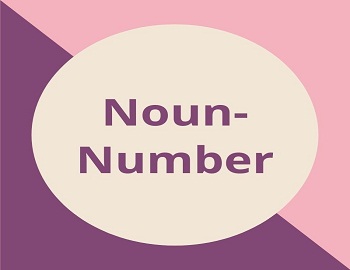
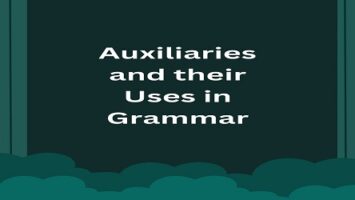

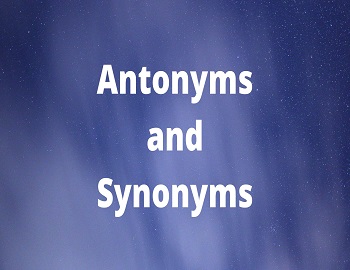
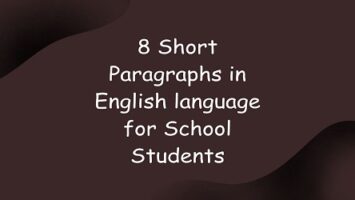
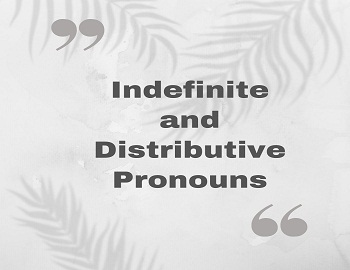
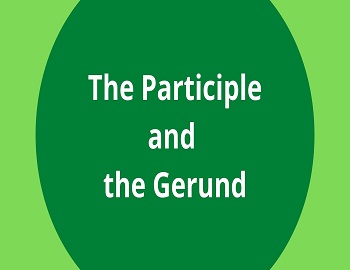

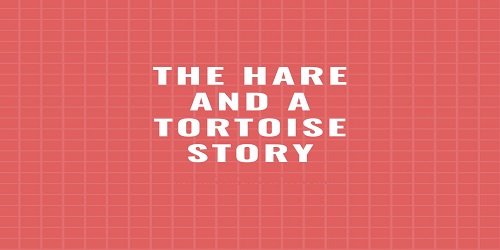
Comments (No)